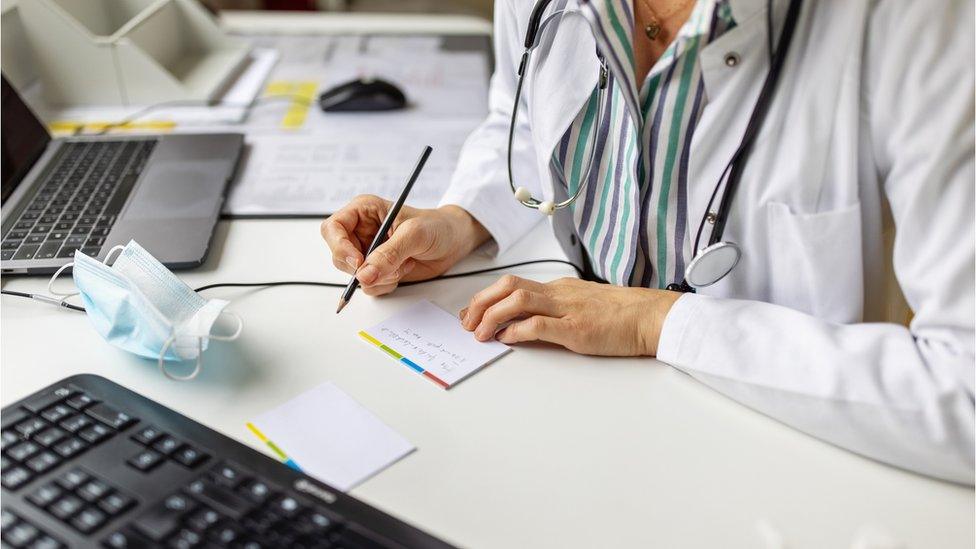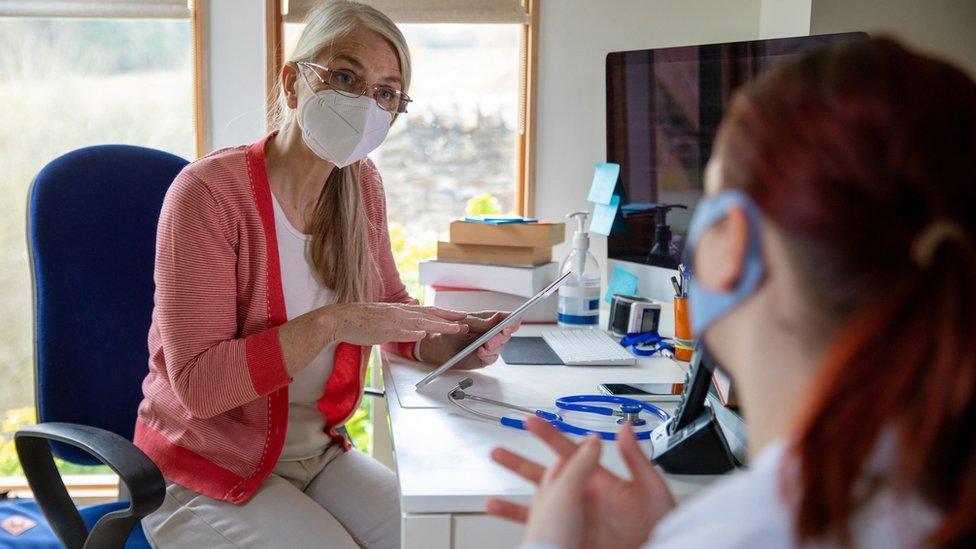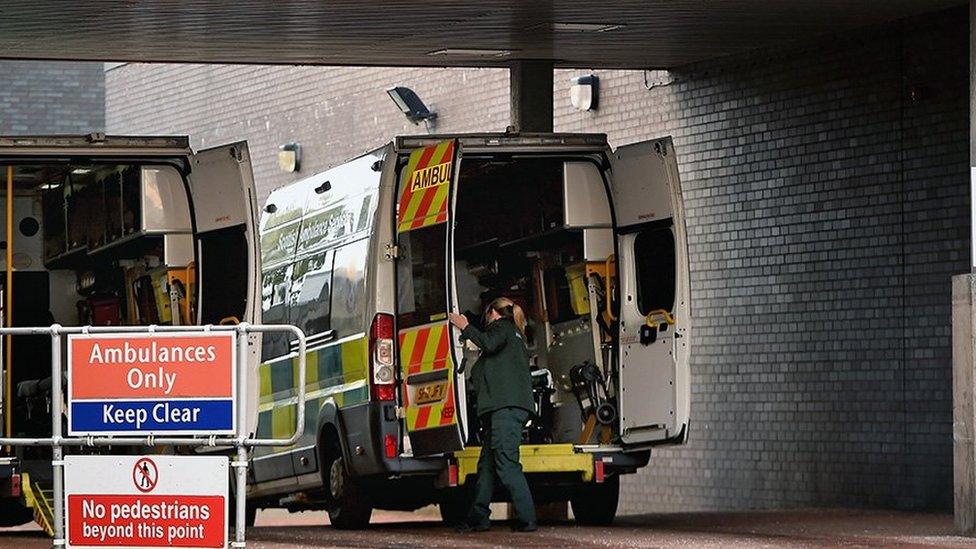Covid in Scotland: Demand for GPs 'double' pre-pandemic levels
- Published
'We need to get patients flowing through the NHS'
Demand for GPs is double what it was before the pandemic and the situation is likely to worsen, a doctor-turned-MSP has told BBC Scotland.
Dr Sandesh Gulhane, a Scottish Conservative MSP and GP, said he had 80 "patient contacts" on Monday.
Pre-Covid he would see about 40 in one day. The current levels are "not safe, not sustainable", he said.
The Scottish government wants to increase the number of GPs in Scotland by 800 by 2028.
It is one of a series of "key actions" for the next five years listed in its £1bn NHS Recovery Plan, which will also see capacity in the NHS increased by 10%.
Meanwhile Scotland's chief medical officer, Dr Gregor Smith, warned that the number of hospital admissions were similar to the levels seen in January.
Last week ministers asked for military assistance for the Scottish Ambulance Service following reports of patients facing long waits for ambulances.
Interviewed on BBC One Scotland's The Sunday Show, Dr Gulhane said the telephones at his surgery were "ringing off the hook".
He said the demand was caused by blockages in the wider health service.
"We need to get patients flowing through the NHS again," he said. "We need operations to start again, we need patients to be seen in clinics because patients are quite rightly coming back to me because they're in pain.
"They're coming back to me and saying 'My hip's still hurting', 'I still have these problems' and I'm treating them but we're struggling to treat them and all the new patients that are coming to us."

The demand means GPs do not have the capacity to offer face-to-face appointments to all those who want them, he said.
Dr Gulhane said he would like a hybrid system in the future - offering patients the choice of online, telephone or face-to-face consultations.
"But GPs need the capacity to be able to offer this choice and that's the problem - there is no capacity in [general practice] at the moment because of a lack of joined-up thinking from the SNP government."
A shortage of anaesthetists is one of the problems causing a bottleneck in the system and he called for a change in the rules for consultants' pensions to solve that issue in the short-term.
He said the NHS Louisa Jordan hospital - built at the SEC Campus in Glasgow during the height of the pandemic - should not have been completely shut down.
"It shouldn't have been that we couldn't quickly open something up because winter pressures are coming.
"We knew winter pressures were coming and I'm hoping the Scottish government were doing modelling even at that stage to see what was happening and how bad the winter would be because at the moment we're living through perpetual winter but it's going to get worse in the winter that we've actually got coming up.
"We need that capacity but we also need the staff to actually be able to do the work but there's no plan."
'Pent-up demand'
Meanwhile Chief Medical Officer Dr Gregor Smith welcomed a recent "slowing" of daily new cases of Covid but he said there was "still some way to go before I'm comfortable with cases entering autumn and winter".
Writing on Twitter he added, external: "In the health and care system, the very high numbers of recent weeks are translating through to more admissions due to severe disease.
"This is becoming more evident in older age groups and combines with the exceptional pent-up demand already in system for other reasons".
He said the seven day average for hospital admissions had risen to 150 admissions a day - "closer to Jan peaks than we've been since then".
"On top of existing demand this level of activity is exhausting for colleagues to manage. Please help them - limiting spread remains critical," he added.
Allow X content?
This article contains content provided by X. We ask for your permission before anything is loaded, as they may be using cookies and other technologies. You may want to read X’s cookie policy, external and privacy policy, external before accepting. To view this content choose ‘accept and continue’.
Last week First Minister Nicola Sturgeon told Holyrood that Scotland's health services were dealing the most challenging combination of circumstances in their history due to the pandemic.
Health Secretary Humza Yousaf told BBC Scotland that the NHS Recovery Plan, external to tackle backlogs in the NHS would lead to an increase in GP numbers.
"We are investing more in primary care," he added. "We have got to look at the NHS as an entire system so we have got to understand that what affects one part of the NHS at the front door of the NHS, also will affect acute services and of course at the back door when it comes to discharge or delayed discharge of people.
"So we are investing in the entire NHS - that's what our recovery plan is about and it's backed by £1bn of additional investment."


- Published25 August 2021

- Published17 September 2021
